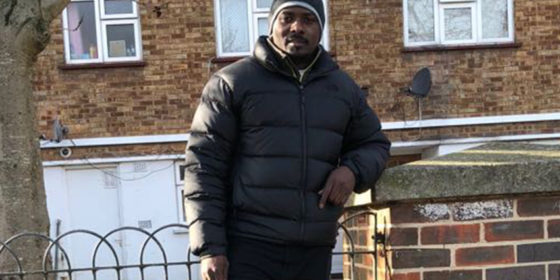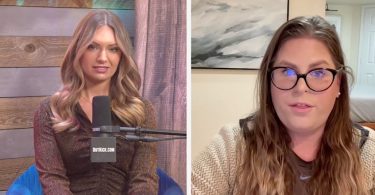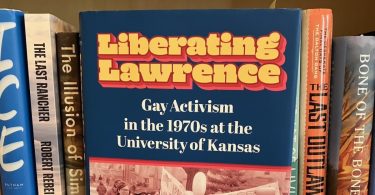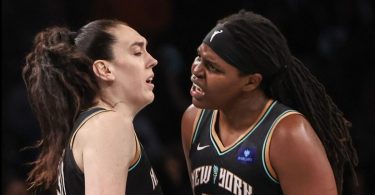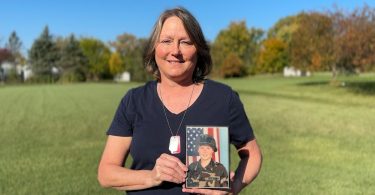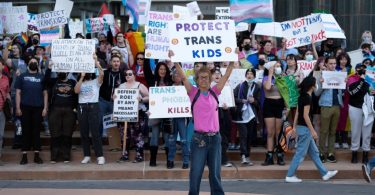Two bisexual people from Uganda have revealed what it is like to go through the asylum process in the UK.
This comes as GSN has revealed the institutional biphobia and discrimination bisexual people face while seeking asylum across the globe.
Data shows the Home Office, in the past two years, have turned away two thirds of the 3,535 gay or bi asylum applications.
Advocates have called on solicitors and judges to have training on bisexuality.
Kirumila Hamid blackmailed in Uganda
Kirumila Hamid, a 40-year-old appealing his failed asylum claim, was being blackmailed in Uganda.
‘In Uganda, it’s very hard. You’re an outcast. It was very difficult,’ he told Gay Star News.
‘I kissed a guy at university,’ he said, saying they were very good friends at first and thought he might feel the same way.
‘When he took it badly, he started spreading rumors and told everyone I was disgusting.
‘He promised he would stop if I gave him money. But it didn’t work. He just wanted more and more money.’
Hamid went to the UK because he thought he could earn money to send to his blackmailer.
He came out to his family. Raised Muslim, they shunned him and Hamid did not speak to them for three years.
Anitah Mbaziira forced to flee a loveless marriage
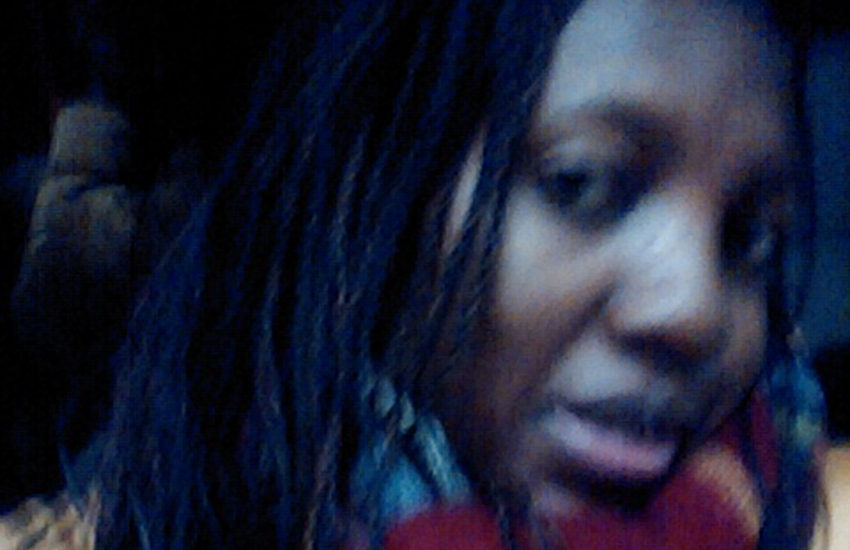
Anitah Mbaziira, 35, realized she was bi at 15 as she went to a single sex school in Uganda.
‘It was scary,’ she told GSN.
‘I tried to pray about it I tried to fast about it. I realized it was me and I can’t change it.’
Mbaziira got to 32 and unmarried, so her uncle pushed her to marry a man named Christopher.
Living in the UK at this point, they met and quickly wed.
But shortly after, she met the love of her life Rose.
‘I was really trying to hide it because I knew I was married, I was with Christopher, I didn’t want him to know I was going out with Rose,’ she said.
But then Rose sent her a text message, saying ‘I miss you when can we meet up?’
Christopher saw it and Anitah admitted to him he was bisexual.
‘He threw me out of the house. It was really terrible,’ she said.
A friend supported her and told her she needed to call the Home Office for asylum.
Asylum claims rejected
But for both Kirumila and Anitah, their asylum claims were rejected.
Both were not believed. If they could have relationships with the opposite gender, then they could go back to Uganda.
They know many Ugandans don’t understand bisexuality either
‘Very few people in my country or in African countries can differentiate between LGBT. They term it as gay,’ Kirumila Hamid, a bisexual Ugandan appealing his failed asylum claim in the UK, said.
‘If you say you are transgender, bisexual, whatever – you’re just gay. They can’t tell the difference. In our countries it is very hard to say “I’m bisexual”. Gay is the general term.’
When Anitah went to file her asylum claim, she had an interpreter. She used the word in her language (which doesn’t have a word for bisexual) and the interpreter told the Home Office she identified as gay.
In the Home Office’s refusal, they told Anitah this had ‘damaged’ the credibility of her claim.
Both fear being killed if they are deported to Uganda
Anitah and Kiriumila’s names and faces have been spread across Ugandan social media and in the tabloid Red Pepper.
They even have to be wary of answering the phone in case it is another death threat.
Because of this, both fear mob violence or even death if they are deported.
‘I wanted to kill myself,’ Anitah said, when she learned her claim was rejected.
‘They wanted to take me back to a place where I would be killed. My family don’t want to talk to me anymore.’
‘You get a freedom in the UK you’re never going to get in my country.’
Ultimately, they feel like they’re living in a limbo. Once asylum is given, if it is given, they will finally be free to live their lives.
Kirumila said: ‘I enjoy going out, expressing myself. You can go out and meet someone.
No one is going to disrespect you because of your feelings. No one is going to yell at you if you’re with a man.
‘You get a freedom in the UK you’re never going to get in my country.
‘I can express myself and can even go out [with African LGBTI groups] and speak for people who can’t speak.
‘We can fight for the voiceless.’
Judges and solicitors must get training on bisexuality
Edwin Sesange, an African LGBTI activist who was given asylum on the basis of bisexuality, has called on the UK to improve how they deal with bi asylum seekers.
It is high time for the issue of cultural context to be addressed in the asylum process,’ he told GSN.
‘Many decisions have been made without considering what various terms or statements mean in people’s cultural perceptions and understanding.
‘The Home Office and the judicial system needs to provide more training to the people dealing with bisexual asylum cases. We cannot assume that everybody understands.
‘In my experience with the asylum process, we have come to realise that even some solicitors do not understand the term bisexual. I remember seeing funny looks on some faces the moment you mention it.
‘You feel the sense of not being understood by the very person about to represent you.
‘There is a great need for a training program for some solicitors representing bisexual asylum seekers.’
The Home Office has denied claims its practices are prejudiced.

